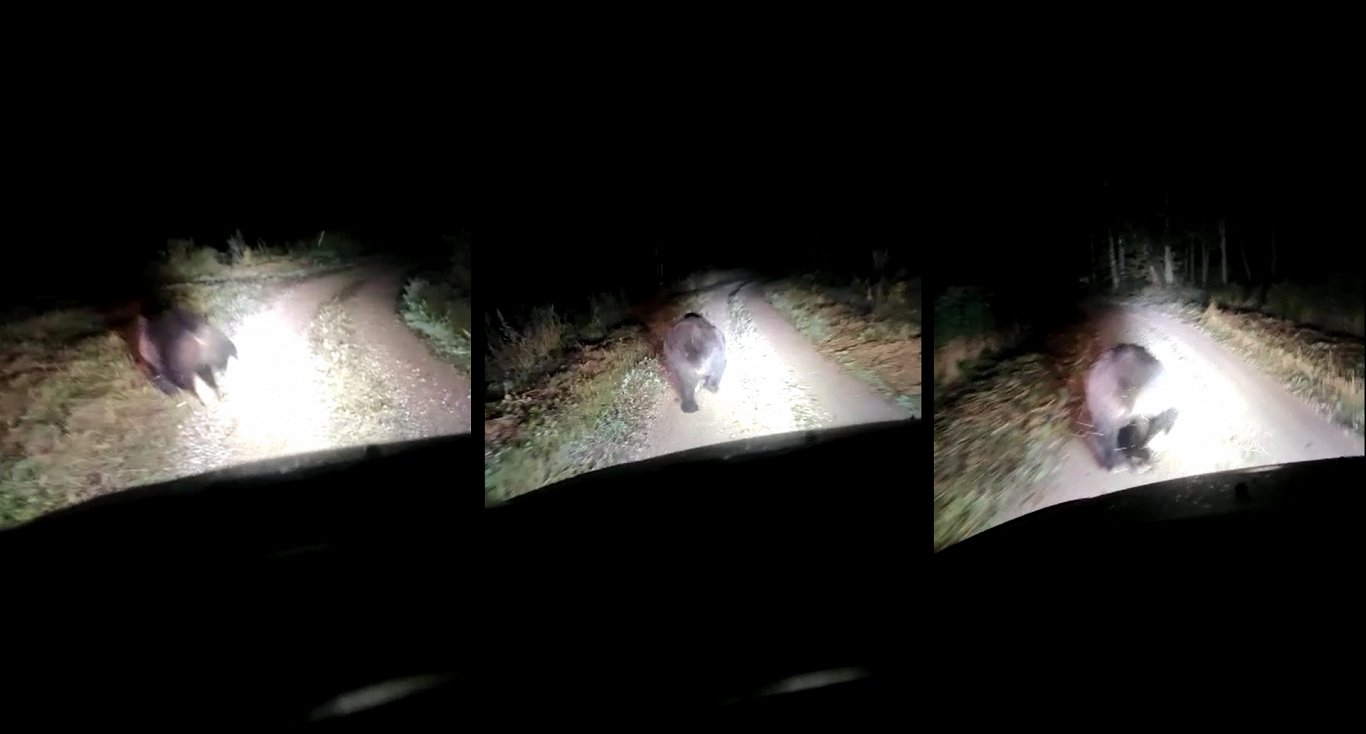As reported by LSM, earlier in the year, a video circulated on social media showing a person pursuing a bear at a high speed, thus deliberately disturbing the animal.
According to expert judgment and the video materials obtained, the pursued bear was forced to run at a rate of 25-30 kilometers per hour (km/h) for a long period of time, at least 2.5 minutes, close to the maximum possible running speed of an adult bear (40-50 km/h), which can only be maintained in a short distance.
On the day of the event, the air temperature recorded at the nearby meteorological stations exceeded +29 C. Experts point out that, at the end of August, brown bears in Latvia have fully recovered the weight lost during the previous winter sleep and begun to accumulate more fat for the following winter, but the uncharacteristically high physical load can significantly delay this process, as well as provoke the need to rebuild energy reserves, potentially causing economic damage, such as eating honey from beehives.
Although there is no evidence for the sex and age of the bear, it is most likely to be a young animal who may not yet have a stable individual area. If the animal entered another bear's territory during the chase, it might have been attacked. If it had encountered another animal or person, the bear would have most likely attacked it.
The case was viewed in accordance with the Law on the Protection of Species and Habitats, which prevents the deliberate disturbance of protected species and provides for a punishment for the violation of these norms. In addition, the case has also been referred to the Food and Veterinary Service, which will decide to bring the person to administrative responsibility for cruel treatment of the animal in accordance with the Animal Protection Act (Article 59).
Brown bear is a protected species in Latvia and Europe, and according to the current legislation on the deliberate disturbance of a protected species, the guilty person may receive a fine of up to €700.
National biodiversity monitoring data show that in recent years the number of bears is increasing throughout the Baltic population, which means that more bears are entering Latvia and some of them remain here for life.
In the past, the main reason for the reduction and disappearance of bear numbers was hunting. As they are not allowed now in Latvia and have been restricted for long periods in Estonia's border area, the bear population is recovering. According to current monitoring data, around 60 bears are found in the wild in Latvia.





























